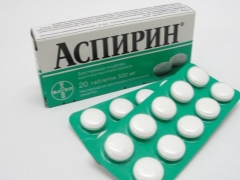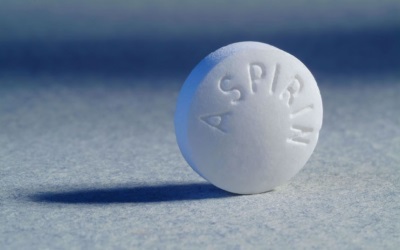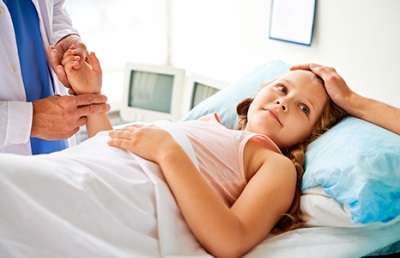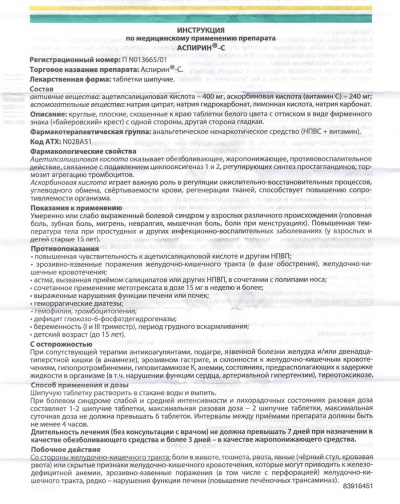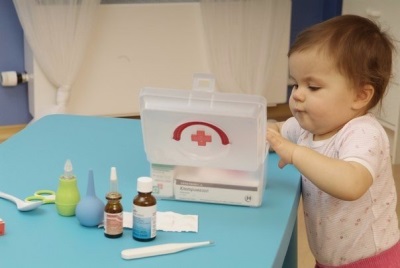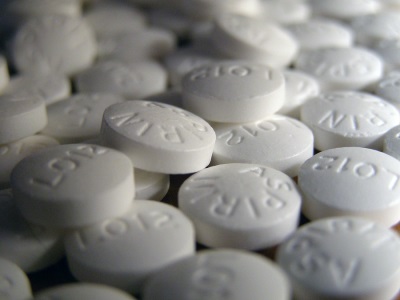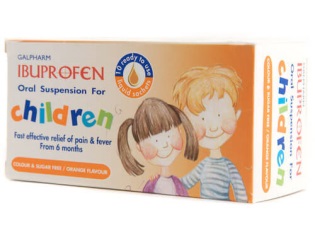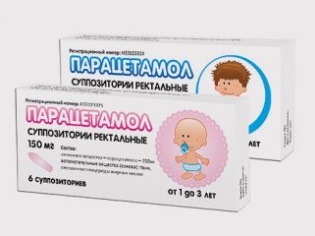Aspirin baby
Not so long ago, Aspirin was actively used in fever, but later information appeared that it could be dangerous to bring the temperature down with such medicine. Is aspirin really contraindicated in children or can it still be given at a temperature? What analogues can replace such a drug and what is better - Aspirin or Paracetamol?
Release form
The drug is manufactured by the German company Bayer. Aspirin is the most common tablet containing 0.5 g of acetylsalicylic acid. These are flat white tablets with a round shape, with no smell or a slight characteristic aroma. There is usually a risk on the tablet so that it can be divided into halves. One pack may contain 10, 20 or 100 such tablets.
The company also produces Aspirin, in tablets which dosage of the active substance is 100 mg. These tablets are sold in 20 pieces in one package. Aspirin is also produced in effervescent tablets with a dosage of 500 mg of the active compound (Aspirin 1000). They are packaged in tubes of 12 or 24 pieces.
Composition
The active substance in Aspirin acts acetylsalicylic acid. In addition to it, starch and microcrystalline cellulose are added to the tablets. In effervescent tablets, the excipients are sodium carbonate, citric acid, and sodium citrate.
Operating principle
Like other nonsteroidal anti-inflammatory drugs, in the group which include acetylsalicylic acid, Aspirin has a analgesic effect and anti-inflammatory effect. Also this medicine lowers the temperature during fever. These effects are due to the effect of the drug on the formation of prostaglandins.
One of the most valuable properties of adult Aspirin is the antiplatelet effect of acetylsalicylic acid. The drug reduces the aggregation of blood platelets and their ability to adhere, because it inhibits the synthesis of a substance called thromboxane A2. This effect is quite long and can last for a week after taking Aspirin.
See the release of the program "Live Healthy!", Which discusses all the properties of this drug:
Indications
Aspirin is prescribed:
- With myalgia, neuralgia and other pains.
- When myocarditis is infectious or allergic nature.
- For the prevention of ischemic stroke or myocardial infarction.
- For the prevention of embolism and thrombosis.
- With rheumatism or rheumatoid arthritis.
- With "aspirin" asthma (to reduce sensitization according to a special scheme).
- At elevated temperatures caused by infectious and inflammatory diseases in adults.
How old is allowed?
Aspirin, like any other medication in which acetylsalicylic acid is one of the active ingredients, should not be given before the age of 15 years. Even in adults, using this medicine for headaches or fever is considered not the best option. According to doctors, it is better to give preference to more effective and safe means, which include paracetamol and ibuprofen. This is what the popular doctor Komarovsky says:
Contraindications
Aspirin is not given when:
- Intolerance to such a medicine.
- Exacerbation of peptic ulcer.
- Severe disorders of the kidneys or liver.
- "Aspirin" asthma.
- Hemorrhagic diathesis.
- Aortic aneurysm.
- Lack of the enzyme "glucose 6 phosphate dehydrogenase".
- Vitamin K deficiency
- Breastfeeding.
- Pregnancy in the first and third trimesters.
Side effects
The main thing that Aspirin is dangerous for a child with acute respiratory viral infections is Reye's syndrome. So called brain damage and liver, which provokes the use of acetylsalicylic acid in viral infections that occur with fever. This syndrome is difficult to treat and is characterized by relatively high mortality.
Even if it is cured, such a syndrome can leave consequences in the form of epileptiform seizures, mental retardation or peripheral neuropathy. It is the high risk of such side effects that explains why Aspirin should not be given to a child with the flu, chickenpox and other diseases caused by viruses.
Other side effects of Aspirin treatment include:
- Allergic reactions, such as spasm of the bronchial tree or a skin rash.
- The appearance of "aspirin" bronchial asthma, which is combined with nasal polyposis.
- Digestive disorders, such as loose stools, stomach pain or vomiting.
- Change in blood count (reduction in the number of formed elements).
- Bleeding from the nose and bleeding gums.
Instructions for use and dosage
Aspirin is given for adults and children over 15 years old by 0.5-1 gram of the active substance with a pause between taking the medication for at least 4 hours. To more accurately determine how much to drink Aspirin for a particular disease, should the doctor. The maximum dose per day is 3 grams of acetylsalicylic acid.
So that the drug does not irritate the gastric mucosa, the tablets are drunk after a meal, and they can be washed down not only with water, but also with an alkaline liquid (milk or mineral water). In case of heat, the duration of treatment with Aspirin should not exceed 3 days, and for pain syndrome, the medication is taken not more than 1 week.
Overdose
The use of aspirin in a high dose provokes the appearance of erosions and ulcers in the gastrointestinal tract. Taking the medication can lead to bleeding, which will manifest as a black stool and severe weakness.
Also, an overdose of acetylsalicylic acid threatens with severe headaches, respiratory failure, nephritis, bronchospasm, vomiting, brain damage, edema, deterioration of the liver, hearing, vision and other negative symptoms. To help the patient, you should immediately flush the stomach and call a doctor.
They talked about aspirin in the program "About the most important":
Interaction with other drugs
- The use of Aspirin increases the therapeutic effect of taking anticoagulants, sulfonamides, nonsteroidal anti-inflammatory drugs, methotrexate, thrombolytic and some other drugs.
- Taking Aspirin with antihypertensive or diuretic drugs will lower their therapeutic effect.
- Appointment with Aspirin of glucocorticoids or drugs, including alcohol, will cause damage to the mucous membrane of the digestive tract, which increases the risk of bleeding in the stomach or intestines.
- With Aspirin, the concentration of barbiturates or digoxin in the body will increase.
- The use of antacids along with Aspirin will worsen its absorption.
- Taking aspirin and paracetamol together is acceptable, but this is not recommended because of the negative effects on the digestive tract that each of these drugs has.
Terms of sale
To purchase Aspirin in a pharmacy, there is no need to present a prescription. The price of 10 tablets of medication is on average 10-20 rubles.
Storage conditions and shelf life
The medicine must be kept in a dry place where small children cannot reach.The expiration date for Aspirin tablets is 5 years, and for effervescent tablets - 3 years.
Reviews
Parents and doctors speak about Aspirin differently. Someone still uses such medicine at high temperature, asserting that it does not bring any harm, but helps quickly enough. However, there is a large percentage of moms and pediatricians who strongly oppose Aspirin in childhood.
At the same time, the opinion from which age it is permissible to give acetylsalicylic acid is also different. Some doctors allow this medicine at the age of 12, others at the age of 14, and someone advises to wait for 18 years or leave Aspirin in the first-aid kit of elderly people in general to prevent cardiovascular pathologies.
Analogs
Since today, most cases of therapeutic use of Aspirin are associated with the prevention of diseases of the heart and blood vessels, there are quite a few analogues, which are mainly prescribed to older people. These include preparations containing acetylsalicylic acid, such as Thrombot ACC, Acekardol, Aspirin Cardio, Aspicor and others.
Among the analogues used in pain or high temperature in adults, the most popular is Upsarin UPS. The drug is released in tablets, from which they prepare a fizzy drink with 500 mg acetylsalicylic acid content.
For children, Aspirin is recommended to be replaced with such drugs with a similar effect, but not provoking Reye's syndrome:
- Paracetamol. This is the safest drug with antipyretic effect, so it is most often chosen to reduce the high temperature in a child's first years of life. In the form of a suspension, the drug is prescribed from 1 month, and in syrup - from three months of age. This drug is most often recommended by doctors at a temperature in children of any age - both at 2 years and at 7 years or older.
- Ibuprofen. This antipyretic medicine is also very popular with children’s fever. He is discharged over the age of 3 months in suspension or in candlelight. Children older than 6-8 years, this tool is given in pills.
